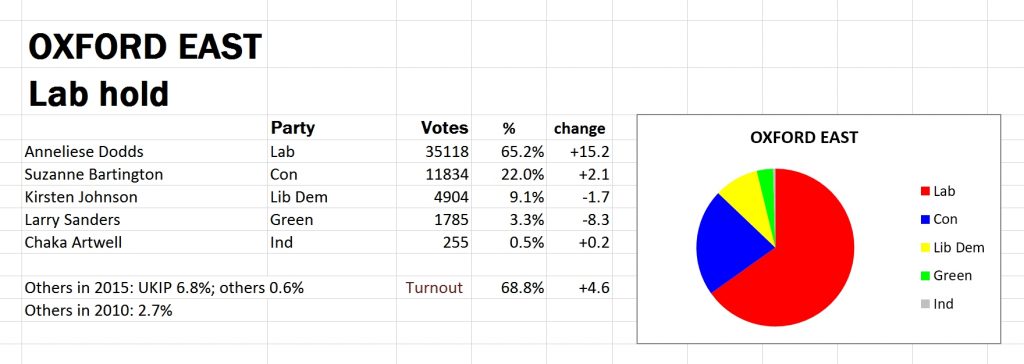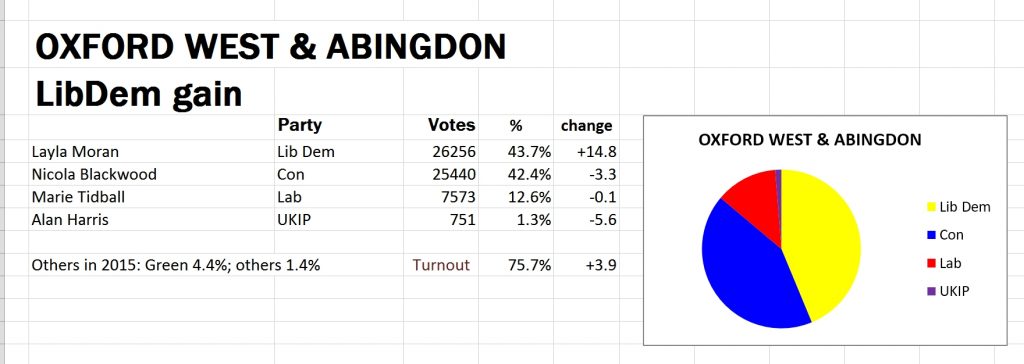Here are the results for the two Oxford constituencies in the General Election of 8 June 2017.
Oxford East
These results echo the 2015 election. In 2010 the LibDem candidate came a respectable second, but with the LibDem meltdown in 2015 the Tories took second place and held that position on Thursday. Labour’s Anneliese Dodds followed the national trend and increased Labour’s share of the vote. It wouldn’t have been surprising if her majority had fallen, given she was taking over from the long-established and popular Andrew Smith, but her background as an MEP helped her deliver a good and convincing campaign. Her strong pro-European stance, although tempered with her decision to accept the Brexit referendum result and not go against it, when coupled with the student vote may have helped in pro-remain Oxford.
Tory newcomer Suzanne Bartington gave a good account of herself despite failing to turn up for the first hustings of the campaign with no explanation. Given more opportunities later she wisely chose not to copy her leader’s tactics and joined in with the general debates.
Like LibDems all over the country* Kirsten Johnson will have been disappointed that the LibDem surge never materialised. She was a strong, committed and passionate pro-European candidate who came over well and who in different times could very likely have made a good MP.
Larry Sanders, standing for the Greens, also ran a good campaign. His message will have resonated with many if not most of the constituency’s Remainers, but he suffered from the Greens’ perennial problem of not being seen as ever likely to win the seat. If we had proportional representation it might have been a different story.
* apart from in the other Oxford constituency – see below.
Oxford West & Abingdon
It was a surprise loss for the LibDems in 2010 when Evan Harris lost his seat to Tory Nicola Blackwood by only 176 votes. Since then Blackwood has established herself as a hard-working high-flyer for the Tories, becoming a Parliamentary Under-Secretary in the Department of Health. This time round Layla Moran reversed the situation for the LibDems, winning the seat with a majority of 816. Her increased share of the vote, 14.8%, was the second highest of the eight seats the LibDems won in England.
Marie Tidball failed to generate the swing to Labour seen elsewhere and trailed a distant third. UKIP’s Alan Harris followed the national trend as his share of the vote fell to just half of its 2010 level and down 5.6 percentage points from 2015.

